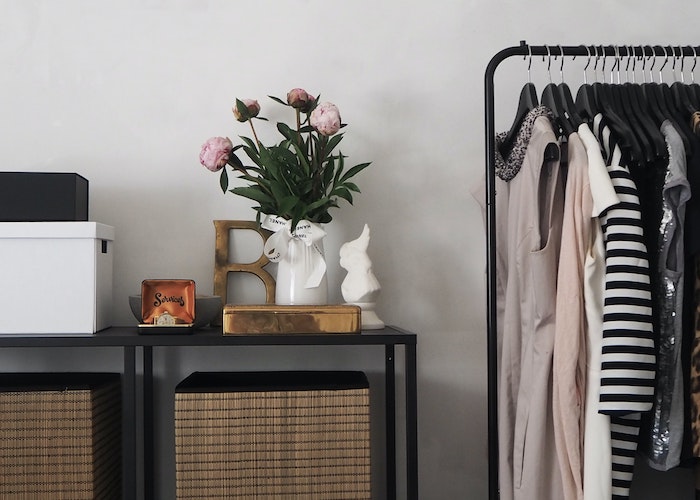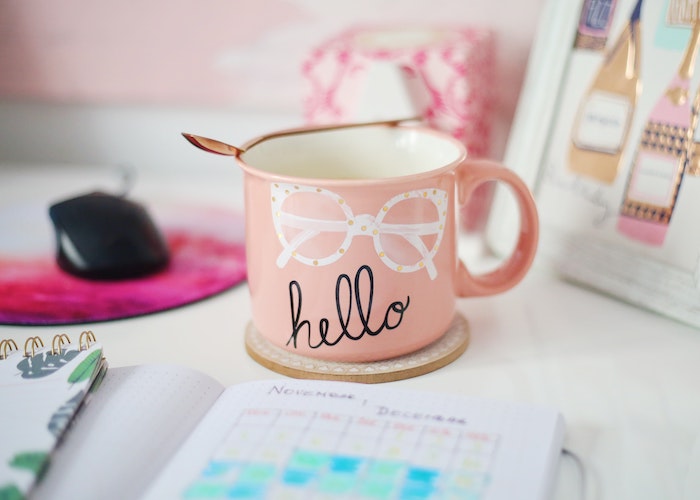How I Landed A Higher-Paying Job Without Updating My Resume
It’s not just one trick or hack that helped me get the job — it was a culmination of them.
After I was laid off last year, I didn’t have high expectations to get a new job right away. We were a few days into quarantine in Los Angeles when the startup I was working for had run out of investor cash, and financial experts had already started predicting an economic recession as millions lost their jobs. Every time I logged on to LinkedIn, I saw post after post about someone’s COVID-19 layoff or furlough story. It was terrifying.
Though I was laid off in March, I didn’t get a new job until mid-July, which was the longest I’d gone without full-time employment since I landed my first job five years prior. I had never lost a job before, and I was exhausted by all the emotions I felt. Ashamed, scared, frustrated, anxious, depressed, and also totally unclear about what I wanted to do next (or what I even could do next), I applied to pretty much any job that called for my skillset and paid money. Which is to say, I wasn’t really picky — something career coaches will probably tell you is bad.
But, by being flexible (although I didn’t really feel like I had much of a choice, given that we were, and are still, in the midst of a pandemic), I was able to press the reset button on my career and also continue calcifying my writing and consulting skills. One day, an editor for whom I wrote, messaged me on Slack and asked me if I was interested in a full-time position at the company I now work for, and I said “definitely.” A couple of months later, I was offered the job.
It wasn’t the path I had expected for myself when I was applying for jobs. I had applied to maybe 50 jobs at that point, and only several actually reached out for an interview. As someone who initially worked their way up from a freelancer to a full-time editor and had gotten recruited to the next two jobs after that (versus applying), I realized how difficult it actually was to get any limb through the door when you’re looking for a new job. It’s not just one trick or hack that helped me get a job — it was a culmination of steps I took and skills I’d worked toward over the last eight years as a media professional. And unsurprisingly, the support I received after losing my job was a huge, huge factor.
In combination, these are some tips that could help you, as well, if you’re looking for a new role.
1. I reached out to everyone in my network when I lost my job
I felt like a failing failure when I lost my job, even though I logically knew it wasn’t my fault, or due to my performance. I’d been successful in every role I’ve had, and these were, as we’ve read probably 1,000 times too many, “unprecedented” times. Everyone I knew, knew someone who had been let go. I wasn’t alone; I now belonged to a community of people who had lost work and were determined to get back on their feet. That gave me the motivation and honestly, courage, to reach out to former coworkers, managers, friends, and editors and writers in my network. I told them point-blank I had lost my job and was super open to new opportunities and thanked them in advance for asking around. Most people were incredibly kind and supportive, and at the very least, I was given multiple opportunities for freelance work, which I happily took. I brazenly even emailed one of my former company’s investors and advisors and informed her about my situation, and she connected me with several other startups looking for consultants. You never know if you don’t ask, because people will never know you need help, otherwise. And you should never feel bad asking for help. Eventually, someone will be emailing you asking for help, and it’ll be your turn to pay it forward. It’s how you grow a strong and supportive network.
2. I said “Yes” to almost every opportunity and certainly “Yes” to every introduction
If the opportunity paid and I felt like I was qualified enough, I accepted every project (even if I knew that it wouldn’t lead to a long-term gig). I formed an LLC, I hired subcontractors, and I gave my first shot at consulting several brands with their content strategies — something I’d never done before. Not every client worked out, and I expected that. I was finding my footing, learning more about what I could offer, and slowly building upon my skill set. Even if an opportunity didn’t seem right at all, I still would hop on a 30-minute call so I could introduce myself. I considered it an investment of time totally worth making. Just because that project wasn’t the best fit, doesn’t mean my new connection wouldn’t recommend me to another colleague, or that a recruiter wouldn’t keep me in mind for another role.
3. I studied LinkedIn profiles and websites of other professionals (in my field) whom I admired
When I was first applying to jobs and updating my LinkedIn, I researched the profiles of leaders at Google, outlets I read, and successful startups. Were they using better language than just “growth,” or “increase,” or “traffic”? How were they selling themselves? What words were they avoiding to describe their capabilities? I treated fine-tuning my LinkedIn like I treated how I upkeep my writing and communication skills — I read and annotated and applied my learnings in my own way (just please don’t plagiarize; you want your profile to be your own and not a mishmash of everyone else’s).
4. I asked former coworkers and managers if they could write a recommendation on my LinkedIn page (and offered one in return)
I felt really vulnerable asking people to leave me recommendations. What if they actually hated me? What if I was annoying them? Do I look desperate? Maybe all of the above, who knows! But when I asked for recommendations, I always offered one in return, and made sure it was thoughtful, specific, and hopefully helpful for them, too. I definitely don’t recommend asking for something like a LinkedIn recommendation (which can be time-consuming) without giving something back in return. If that person is super settled in their career (like one of my former managers who is now an investor and works for herself), tell them you’d love to take them out to coffee (whenever that can happen safely, obvs), or send them a thank you card — something equally meaningful that expresses your gratitude.
5. I had friends and former coworkers look over my existing resume
When my coworkers and I lost our jobs, we looked over each other’s resumes (and also hopped on a few Zoom calls just to talk our feelings out, which was really cathartic and made me personally feel way less alone). I’m also lucky to have a friend and former colleague who’s a recruiter, and she offered to look over my LinkedIn and resume and give me critical feedback (I Venmo’d her some cash, since I knew she was worried about her own job stability at the time). Having a few people look at what I was going to be sending out to dozens of recruiters was immensely helpful. Not only did they catch typos, but they made suggestions I hadn’t thought of; the different perspectives were much needed.
6. I didn’t let myself stress about one role — your life will not be over if you don’t get the first job you want
I was lucky that I had some income coming in, and that I had savings. When I didn’t get a response about a role that seemed really intriguing, or if a contact didn’t email me back, I didn’t get hung up about it (which is really good for me, because I excel in letting myself get hung up about everything and anything). I just kept moving forward and taking the process day by day — which is all I could do, even if my anxious brain wanted to think there was another way around the situation. Oftentimes, the best way is through, and that’s how this process felt. For example, I had a really awkward interview with a giant social media company we all know and probably have strong feelings about. The person interviewing me had asked me questions I was perplexed about, and they totally threw me off by saying something super negative about a manager I’d had at a previous company.
I didn’t get the job, even though I figured it would be the most stable one I could get, and that it would pay well and offer amazing benefits. But it was also okay — I knew just from the interview alone that it wasn’t the right environment for me, and I let go of all of the “what ifs.”
7. I focused on communicating numbers and quantitative data while also highlighting qualitative data and soft skills
While it totally depends on the job you’re applying for, many recruiters and hiring managers will want to know exactly why and how you’re successful — and that usually entails quantitative data of some sort. I made sure all of the impressive numbers were in bold or a bright color on my resume, and I also brought them up in interviews. But! I also balanced this out with letting the person on the phone or video call know that while I understand how important the bottom line is, I also use X, Y, Z soft skills to get there (i.e., my management style, or my ability to meet quick deadlines). There’s a fine balance between listing off numbers and percentages like you’re reading them from notecards, and not addressing your accomplishments at all.
8. I didn’t hold back on letting my personality come through
While you want to be super professional, you also don’t want to muffle your personality. I’ve never asked the editor who referred me why she referred me, but judging based on my previous experiences getting hired, it seemed like she had faith that I could do the job, and that I’d be a good fit for the company as a whole. And as someone who has brought on freelancers into full-time positions, I only did so if I thought they would add not only value as an employee, but as a person. Were they kind? Considerate? Patient? Accessible? A team player? Willing to learn? During my time as a freelancer with the company I now work for, I chatted with my direct assigning editor about her family or whatever news was trending that day. I offered to take extra assignments, and was super receptive when given feedback. I wanted to perform well, but I also wanted to form connections — and that part of me (the very human part) is something I wanted recruiters and hiring managers to know about.
BONUS: 9. I used Canva to make sure my resume looked fresh and updated
While I know we are focused on non-resume tips, I felt this could still help people who are not necessarily looking to change the information on their resume, so much as they want to optimize the presentation of it, in order to increase visibility. So while this isn’t a how-to for your resume per say (you can find those tips here), this is a major tip for adding a bit of zhuzh to yours.
It had been a while since I put together a resume, and at my previous jobs, I noticed that the resumes that had caught my attention were always ones that stood out, stylistically. Luckily, you don’t need Photoshop or design skills to create a resume that looks curated and artistic. You just need a little bit of patience and a good eye for formatting. I used the free design platform, Canva, and put together a resume that was a little more exciting than just a standard Google Doc listing out my experiences. (Not that there’s anything wrong with standard PDFs and Word Docs — I just felt like, in my industry, it didn’t hurt to add a little ~zest~ to my resume.)
Gina Vaynshteyn is an editor and writer who lives in LA. You can find more of her words on Refinery29, Apartment Therapy, HelloGiggles, Distractify, and others. If you wanna, you can follow her on Instagram or Twitter.
Image via Pexels





